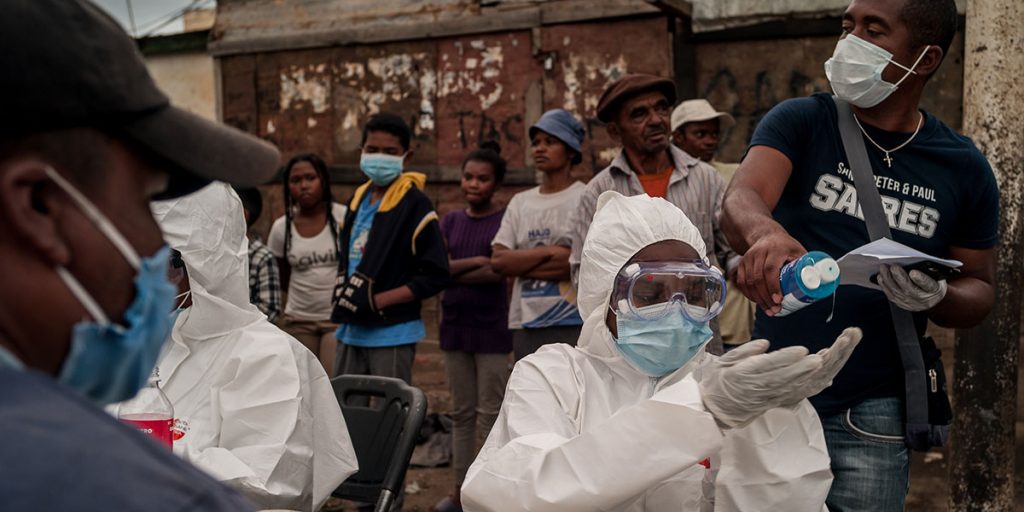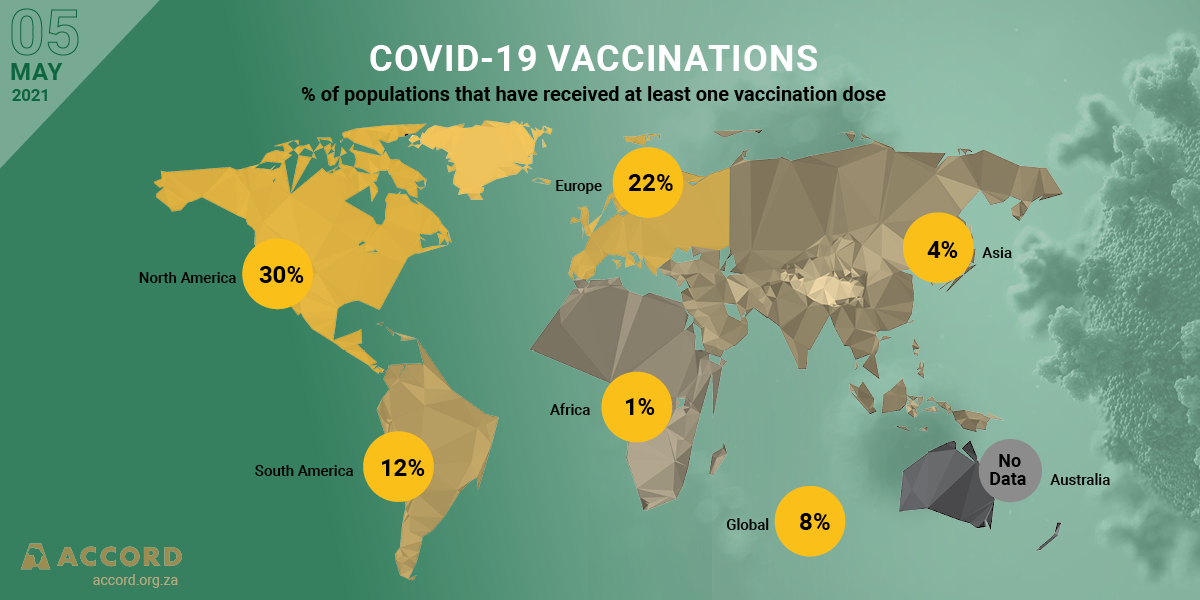Since health crises are never purely about health but affect all dimensions of human livelihood and societal welfare, the COVID-19 crisis is a major threat to the world as we know it. The talk of a new normal that the world has been forced into over the past year is signaling a transition from the ways of the world as we know it to ones we had not fully known and prepared for. But not all the new is beneficial to all peoples of the world. In this piece we argue that because the crisis reforms the world in the way that it does, based on pre-existing structural conditions, when seen from the global south, the crisis is creating both opportunities for deepening the transformation towards the world for all and impediments to this very ideal.
Health crises are never purely about health but affect all dimensions of human livelihood and societal welfare, #COVID-19 is a major threat to the world as we know it @siZondi
Tweet
COVID-19 and the South
Precisely because the current world system is structured into a global south as a zone for developing and under-developing countries, on the one hand, and the global north of prosperous parts of the world, on the other, the COVID-19 crisis which affects all, affects the two differently. Both are heavily hit by the incidence of the virus with large portions of the population having been infected in the past year, health systems put under pressure and considerable costs born in the process of responding to the crisis. Both have tested the resilience of the governance systems and have witnessed the fracturing of society around rights versus notions of national emergence or national security, the rise of authoritarian tendencies by governments in the name of responding to COVID-19, rise in some forms of violence including gender-based violence and others. They have both suffered huge economic losses as business ground to a halt as a result of lockdowns and other forms of restrictions implemented as part of risk-adjusted COVID-19 responses across the world. The social costs in the form of destruction of livelihoods and erosion of elements of social capital is evident in various parts of the world, across the north-south divide.
Yet, the structural inequality between the north and the south has a direct bearing on how these two geopolitical zones experience the demands and impacts of the crisis. With a larger proportion of the poor, the global south bears heavier socio-economic cost from this crisis. With a larger number of states with moderate to weak governance systems, the global south witnesses a lot more evidence of state failure to lead an effective all-of-society comprehensive response to COVID-19.
COVID-19 has shown just how critical a strong, efficient, effective and organised state is for leading society in response to this crisis. Countries that have built resilient institutions and social capital over a period have found that pre-existing capacity crucial in deciding if they succeed or fail in responding to COVID-19. It is obvious that the global north has many countries with such state capacity to support societal resilience against crisis over a long period of time. These differences are not only about what these countries have done or not done, but it is also a function of a world system with an unfair distribution of power, resources, capabilities and opportunities between the centre or the north and the periphery found mainly in the south. This structural hierarchy in power has privileged the north and constrained the global south. Yet the south can respond innovatively

South-south cooperation
The global south has put faith in international cooperation and multilateral responses to help coordinate and organise comprehensive responses. The periphery has always seen international cooperation as a means to level the playing ground. In this case, this is about ensuring equitable access to resources, skills, technologies, therapeutics and vaccines. It is about solidarity among countries in confronting a shared near-existential crisis. The south has come out in support of the catalytic role of the World Health Organisation and the United Nations, working with other multilateral formations. It has insisted on responses that are developmental in the sense that they reinforce the implementation of sustainable development goals. The south wants responses that leave no one behind, but those that add an impetus to the search for innovative and lasting solutions to age-old problems of structural poverty, inequality, underdevelopment and marginalisation.
Structural inequality between the north and the south has a direct bearing on how these two geopolitical zones experience the demands and impacts of the crisis @siZondi
Tweet
It is in this context that the global south sees opportunities for deepening south-south cooperation through collaboration among countries and institutions in the south beyond health issues. This collaboration is expected to rebuild the capacities needed for countries of the south to have strong economies, sustained development and resilient society. This requires upscaling financing resources for building essential capacities. It needs the harnessing of the support of regional development finance institutions. Development banks in the south need to innovate their funding strategies to make resources available for building capacities and resilience for the long-term process of building back better. The need to adapt trade and investment policies include stronger south-south trade and investment.
It is time for enhanced south-south cooperation in health that makes provision for the transfer of essential knowledge and technologies within the south as well as manufacturing and distribution of essential medicines. Through this, lessons may be shared on health governance. Building food sovereignty in the global south requires harnessing regional and inter-regional agricultural value chains. Efforts to save small and medium food producers are essential for long-term societal resilience. This south-south cooperation also extends to finding innovative solutions to social ills like violence and conflict that continue to grow as a result of the crisis currently unfolding. Building strong regional human security capabilities are crucial in this regard.
Professor Siphamandla Zondi teaches politics and international relations at the University of Johannesburg, South Africa.


